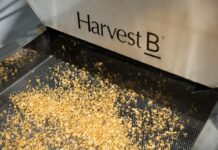Queensland has seen a $1.6 million rise in exports over the year to November quarter 2016 on the back of significant increases in the value of hard-coking coal and Liquefied Natural Gas exports.

“In the 12 months to November, the value of Queensland’s exports totalled $49.5 billion, what this shows is the significance of Queensland as a major global exporter of key resources and agricultural products,” he said.
“However we recognise not all sectors or regions are making the transition to a post-mining boom economy as well as others and we will continue our financially responsible efforts to stimulate more growth and jobs across our state.”
The Acting Treasurer said further growth in export values was expected in coming months driven by higher coal contract prices, However, Mr Byrne remarked that these contract prices are not expected to be sustained in the longer term with hard-coking coal spot prices falling in early January 2017.
“Queensland Treasury estimates that LNG exports increased $728 million over the year to November quarter 2016 to $1.9 billion,” Mr Byrne noted.
“The final two LNG production trains commenced exports out of Gladstone during 2016, meaning there are now six production trains on-line. As a result, LNG exports are expected to drive strong economic growth of 4% in 2016-17.”
According to Mr Byrne, numbers also revealed that crops exports increased by $136 million over the year to November quarter 2016, to a total of $662 million.
“The value of cotton exports increased by $17 million to $150 million driven by an increase in export volumes,” he said.
“Looking ahead, Queensland’s crops exports are expected to increase in the coming year, following recent improvements in weather resulting in ideal planting conditions. There are forecasts for chickpea production to reach a record high in 2016-17, while a significant increase in the supply of irrigation water and record winter rainfall in parts of Queensland is expected to lead farmers to switch from planting sorghum to cotton, which offers a higher return.”
The Acting Treasurer also noted that Queensland has experienced a decline in overall meat exports over the year to November quarter 2016, mainly due to the slump in the volume of beef exports.
He said the state has recorded a decline in minerals exports, with aluminium and copper the only major mineral exports to record an increase in export volumes over the year.
“Minerals exports fell $447 million over the year to November quarter 2016, to $2.0 billion, with the decline reflecting falls in the value of all major mineral exports,” Mr Byrne continued.
“While zinc and lead production has fallen over the past year, a strong recovery in zinc prices over 2016 appears to have encouraged additional supply, with Glencore’s zinc production rising 13% in September quarter 2016 compared to the June quarter.”



















